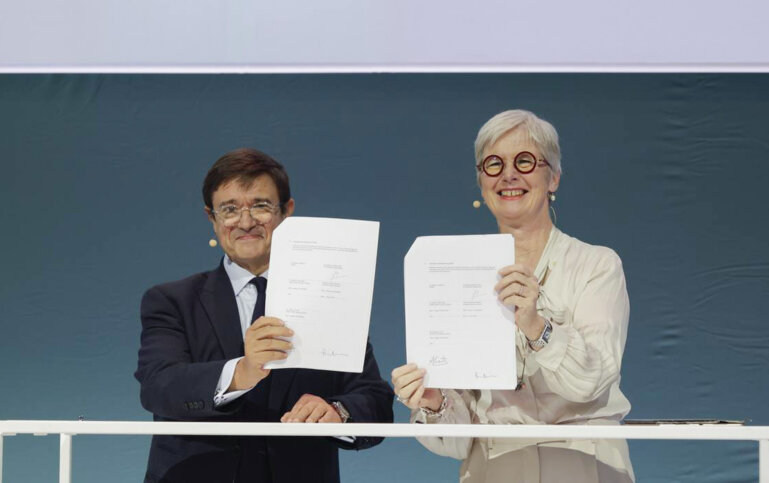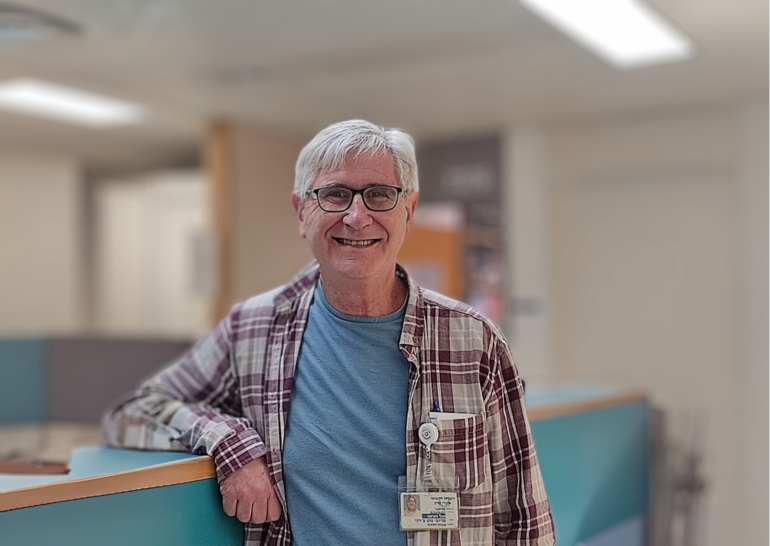In the period 2024-2026, the technical collaboration between the United Nations agency and the Society plans a series of evidence-based activities to improve global cancer care
With the global number of new cases of cancer expected to reach 28.4 million by 2040 and a relative magnitude of increase to be most striking in low- and middle-income countries, concrete actions to effectively reduce the overall burden of cancer and inequalities in oncology have gained urgency.
As part of the Collaboration Plan for 2024-2026, the World Health Organization (WHO) and the European Society for Medical Oncology (ESMO) have identified three key areas – accessible cancer care, cancer prevention and oncology professionals’ education – for improving cancer care worldwide, where activities and tangible achievements will be seen in the next three years. The plan is the result of long-standing mutual trust between the WHO and ESMO, which has been recently granted the renewal of its status as “non-State actor in official relations with WHO”, a privilege conferred upon entities which are not allied to any particular country or state like non-governmental organisations, but have a recognised influence at an international level to drive change. “ESMO Members have to be proud of this achievement,” states ESMO President Prof. Andrés Cervantes. “By representing more than 35,000 oncology professionals worldwide, the Society is well placed to offer guidance to policy decision-making and action because it is equipped with the scientific evidence that is needed to inform decisions, and the practical evidence that comes from the feedback of all those professionals working on the ground.”
Validated ESMO tools to optimise resources
As part of the collaboration plan, ESMO will support WHO to promote equitable access to essential cancer medicines and technologies, develop and implement policies and strategies for global cancer control, and strengthen the oncology workforce through supportive policies and training. Validated tools will play a major role in the three priority areas identified. The ESMO-Magnitude of Clinical Benefit Scale (ESMO-MCBS), for example, which derives estimates of clinically meaningful benefit of cancer medicines from published data, provides a backbone to update and optimise national lists of essential cancer medicines and treatment protocols. In 2022, in fact, an evidence-based methodology that relies on the ESMO-MCBS and other tools and resources was presented to empower governments and other cancer stakeholders globally to make efficient spending decisions in oncology following a successful pilot experience in Kazakhstan (ESMO Open. 2022 Feb;7(1):100362).
ESMO’s technical expertise was also pivotal to the design of the Cancer Module of the WHO Integrated Health Tool, in collaboration with WHO and the International Agency for Research on Cancer (IARC), for strategic planning of cancer care at national level. “By using this tool, WHO can support Member States in costing their national cancer control plan, identifying and costing priority interventions included in national cancer planning, designing of or updating cancer interventions included in national health benefit packages, and generating an investment case” explains Dr Raffaella Casolino, ESMO Member serving as a cancer expert on the WHO Cancer Control team. So far, the tool has already been implemented in five countries and it was presented to a larger audience at the ESMO Congress 2023 in Madrid. “Since then, the number of countries requesting to use and receive assistance with this tool has increased substantially. Now we are ready to move to the next phase of the collaborative project, which consists of training those professionals, be they ESMO members or other medical oncology professionals from around the world, who will be responsible for utilising and implementing the tool in their respective countries.”
Finally, a comprehensive tool for cancer care workforce planning is under development and will forecast country-specific needs for oncology professionals based on the disease burden, to ultimately help optimise workforce strategies.
“ESMO is always at the forefront when it comes to educating the oncology professionals and advocating for a sustainable healthcare system for the benefit of patients with cancer and the doctors caring for them,” concludes Cervantes. “The collaboration between ESMO and the WHO in all these three crucial areas will be beneficial for the wider oncology community to make important decisions to achieve the overall goal of universal health coverage, and that can only be made properly if based on scientific evidence, which we are proud to provide.”




